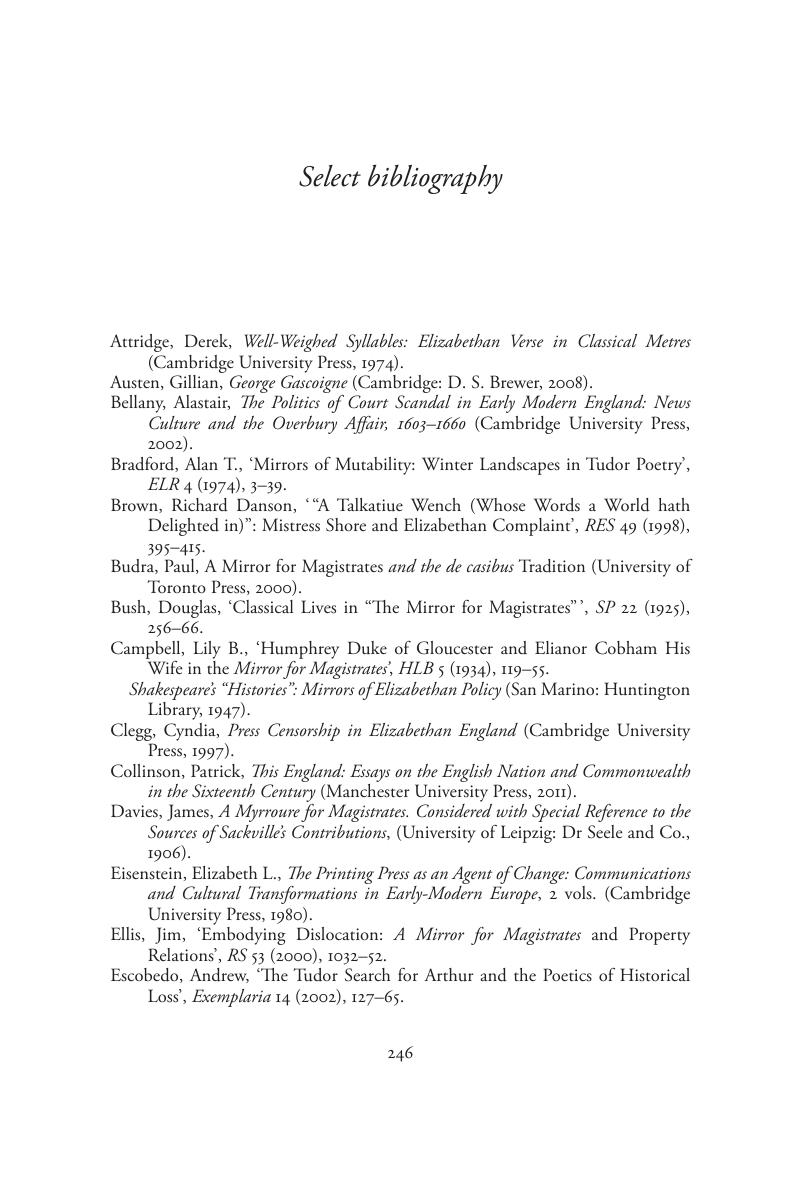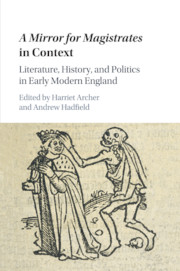Book contents
Select bibliography
Published online by Cambridge University Press: 05 August 2016
Summary

- Type
- Chapter
- Information
- A Mirror for Magistrates in ContextLiterature, History and Politics in Early Modern England, pp. 246 - 249Publisher: Cambridge University PressPrint publication year: 2016

